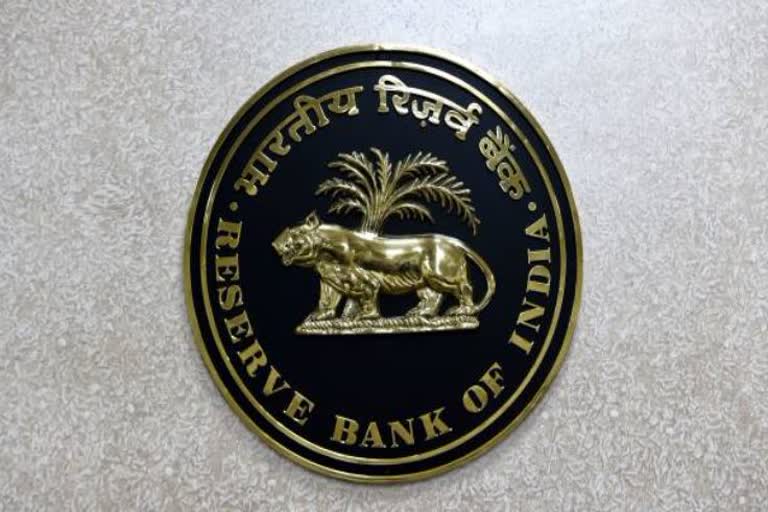Mumbai: The Reserve Bank on Thursday proposed to introduce a prepaid payment instrument (PPI) that could be used only for transactions of goods and services worth up to Rs 10,000.
PPIs have been playing an important role in promoting digital payments and bringing in the new PPI will further facilitate its usage, as per an RBI statement issued post announcement of the monetary review on Thursday.
"To further facilitate its (PPI) usage, it is proposed to introduce a new type of PPI which can be used only for purchase of goods and services up to a limit of Rs 10,000," the statement said.
The central bank said the loading and reloading of such PPIs can be done only from a bank account and used for making bill payments and merchant payments.
Such PPIs can be issued on the basis of essential minimum details sourced from the customer.
The RBI said it will give instructions in this regard by December 31, 2019.
PPIs are instruments to facilitate purchase of goods and services, including financial services, remittance facilities among others against the value stored on such instruments.
These can be loaded and reloaded by cash or debit to a bank account or by credit card or from other PPIs up to a limit of Rs 50,000 per month. As on now, banks and non-bank entities are permitted to issue and reload such payment instruments.
Read more:Highlights of RBI's monetary policy statement
There are currently three kinds of PPIs allowed by RBI --closed system PPIs, semi-closed system PPIs and open system PPIs.
The banking regulator also announced to allow the International Financial Service Centre Banking Units (IBUs) to open foreign currency current accounts of their corporate borrowers in order to facilitate ease of operations.
As regard to liquidity coverage ratio, it has also allowed the IBUs to accept fixed deposits in foreign currency of less than one year tenor from non-bank entities and consequently remove the current restriction on premature withdrawal of deposits.
"However, the current prohibition on acceptance of retail deposits including from high net worth individuals (HNIs) will continue. Necessary instructions are being issued shortly," the RBI said.
The Reserve Bank also put forth the reviewed foreign exchange hedging facilities allowing users to undertake over the counter (OTC) currency derivative transactions up to USD 10 million, without the need to evidence underlying exposure.
"Banks shall be provided with the discretion, in exceptional circumstances, to pass on net gains on hedge transactions booked on anticipated exposures. Strengthening of the safeguards to ensure, that complex derivatives are sold only to users that are capable of managing the risks," the RBI said.
The final directions in this regard will be issued after notification of the changes to Foreign Exchange Management Act (FEMA) Regulations, RBI said in the 'Statement on Developmental and Regulatory Policies'.
On Tap Licensing of Small Finance Banks
The Reserve Bank of India on Thursday released on its website, “Guidelines for ‘on tap’ Licensing of Small Finance Banks in the Private Sector”.
Major changes from the earlier Guidelines on Small Finance Banks dated November 27, 2014, are:
- The licensing window will be open on-tap
- Minimum paid-up voting equity capital / net worth requirement shall be ₹ 200 crore
- For Primary (Urban) Co-operative Banks (UCBs), desirous of voluntarily transiting into Small Finance Banks (SFBs) initial requirement of net worth shall be at ₹ 100 crore, which will have to be increased to ₹ 200 crore within five years from the date of commencement of business. Incidentally, the net-worth of all SFBs currently in operation is in excess of ₹ 200 crore
- SFBs will be given scheduled bank status immediately upon commencement of operations
- SFBs will have general permission to open banking outlets from the date of commencement of operations
- Payments Banks can apply for conversion into SFB after five years of operations, if they are otherwise eligible as per these guidelines
In the Second Bi-monthly Monetary Policy Statement, 2019-20 of June 06, 2019, it was announced that the Draft Guidelines for ‘On tap’ Licensing of Small Finance Banks will be issued by the end of August 2019. Accordingly, the Draft Guidelines were placed on the RBI’s website on September 13, 2019 inviting comments from the stakeholders and members of the public. After examining the responses received, the ‘On tap’ Licensing Guidelines for Small Finance Banks have now been finalised and issued.



